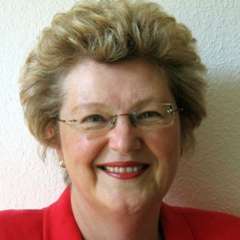When Vincent Huguet started his Mozart–Da Ponte trilogy a few years ago, he changed the order in which the works were composed because his concept is one in which the three operas each tell of different phases of life: Così fan tutte is about the love and turmoil of youth and self-discovery, set in the hippy era, Le nozze di Figaro concerns the challenges of adulthood – marriage, affairs, midlife crises – set in the 1980 and 90s and, finally, an ageing Don Giovanni questions himself and tests his erotic prowess.
Huguet was inspired by the four volumes of Sexuality and Truth written in the 1970s by the French philosopher Michel Foucault. As in the other two parts of the trilogy, however, there is little indication of this philosophical discourse. Huguet transposes the story of a seducer who ends up in hell because he mocks his murder victim, to the present day. His Don Giovanni is the alter-ego of star fashion photographer Peter Lindbergh, easily identifiable with a three-day-beard, sneakers and a crumpled linen shirt in a chic concrete loft (Aurélie Maestre's sets recognisable from the other two operas), who uses his position of fashion power to get as many women onto his casting couch as possible. In the end, Don Giovanni meets the Commendatore in a funeral hall. Is the villain really dead and all ends well? In this production, we are not so sure; Huguet leaves his Don standing at the edge of the stage, laughing his head off at the continuous double standards of his supposedly morally upright victims.
Just to make sure the audience is aware the story is taking place in 2022, the Commendatore is accidentally killed when he hits his head on a boulder, and when Don Ottavio calls for help on his mobile phone, the police arrive in hazmat suits with the requisite murder scene props; Leporello has a tablet and does Tinder right-swipes showing all of Don Giovanni's conquests – each one a perfectly photographed model in costumes by Clémence Pernoud, Donna Elvira included – projected onto a large screen. Such gags, however, cannot conceal the fact that Huguet's directorial concept is quite thin. The evening shuttles awkwardly between realistic and symbolic scenes without finding a unifying language. Moreover, Huguet stretches scene sequences and entire arias with awkwardly timed altercations that have hardly any consequences for role interpretations.
Daniel Barenboim opted for decidedly slow tempi with the Staatskapelle Berlin in order to create a detailed musical narrative, showing the textures and various orchestral planes with astonishing clarity. Despite this, there was little of the erotic tension that makes this Mozartian score so unforgettable. Only the harpsichord recitatives, in which the singers masterfully explored the boundaries of speech, felt truly fresh.
That leaves the soloists, the greatest asset of this production. Michael Volle, a great Wagner and Verdi interpreter, is clearly past his Don Giovanni zenith. But that may have been intentional: he is supposed to be an ageing bon vivant who is gradually losing it. His sonorous bass-baritone, roughened at the edges, had a correspondingly strong effect when he boasted or rumbled, and when an inkling of his approaching end arose, he lent his voice a grandiose colourless. But when the melody became simple and songlike, as in the famous Champagne aria, his voice sounded pressed.
Around him, there was an ensemble of young female voices who approached their roles with such freshness it was pure joy to listen to them. Elsa Dreisig was a young and sexually unfulfilled Donna Elvira, yearning for Don Giovanni's love, but knowing that she won't be able to get it. Vocally, she showed herself vulnerable, hurt and downright mad. The same goes for Slávka Zámečníková as Donna Anna, whose silvery soprano showed how complex her situation was between revenge of her father's murder, complicity and passion for a seducer who is so much more interesting than her boring fiancé. With Bogdan Volkov, Don Ottavio was about as middle-class bourgeois as he can be, someone who talks a lot but does little. He succeeded in giving convincing moments in his middle register, but mostly his Ottavio remained quite pedestrian. Serena Sáenz' Zerlina sounded as fresh and dazzling as David Oštrek's Masetto was sonorous. Adam Palka, a last-minute substitute as Leporello for the indisposed Riccardo Fassi, whose character was designed to be an apprentice to his master, gave his character a rambunctious walk-through. Bass Peter Rose's Commendatore convinced in its solidity.
For all the good singing of the female roles and the superb playing of the Staatskapelle in the pit, there was hardly a trace of psychological characterisation or at least of directorial craftsmanship in this production, leaving many questions unanswered.




